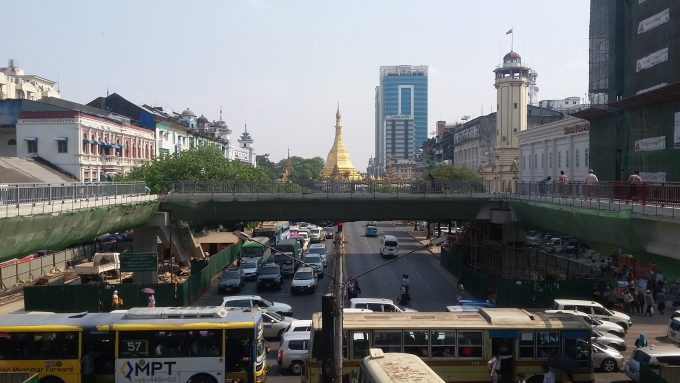Colin Eeles joins Kerry Logistics as business development director
Kerry Logistics UK has appointed freight industry veteran Colin Eeles (above) as its new business ...

Despite the heavy pollution coughed out of the exhausts of crawling city-centre traffic, a fresh sense of optimism in the air in Yangon, Myanmar’s former capital and commercial hub, is unmistakeable.
The country’s first civilian government was sworn in last week, following November’s elections when ex-political prisoner Aung San Suu Kyi’s party won a landslide victory and the military conceded to power-sharing.
For Patrick Dick, Myanmar managing director of Switzerland-based freight forwarder The Freight Co, the political transition should mean new opportunities to assist ...
Volcanic disruption at Anchorage could hit transpacific airfreight operations
Macron calls for ‘suspension’ – CMA CGM's $20bn US investment in doubt
De minimis exemption on shipments from China to the US will end in May
Forwarders stay cool as US 'liberation day' tariffs threaten 'global trade war'
Trump tariffs see hundreds of cancelled container bookings a day from Asia
Mixed response in US to 'Liberation Day', while China leads wave of retaliation
Tariffs and de minimis set air freight rates on a volatile course
Overcapacity looms for ocean trades – with more blanked sailings inevitable
East-west rates diverge as transpac spots hold while Asia-Europe keeps falling
Temu and DHL join forces to expand non-US ecommerce sales
Purchase of Panama railway 'a significant opportunity' for ambitious APMT
'To ship or not to ship', the question for US importers amid tariff uncertainty
Survey results: the biggest concerns for forwarders and shippers in 2025
DHL Capital Markets Day – Scharwath steals the show, plays down size concern
'No lookouts on either ship' says MAIB report on box ship-tanker collision


Comment on this article